
Headline stories have kept the genocide in Rwanda, the Liberian civil wars, and the conflicts in Somalia in the public eye, but few are aware that Algeria has spent almost half a century in a series of struggles that have claimed the lives of hundreds of thousands of people.
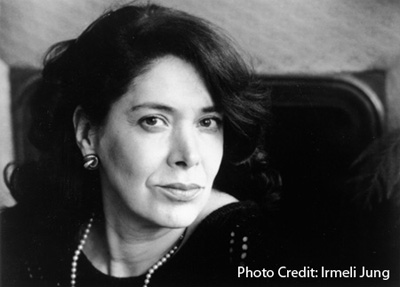 Assia Djebar has been writing throughout that entire sweep of her country's history, from
the days of the war for independence from the French, through the civil wars between secular
militants and Islamic insurgencies. Her works not only provide witness to the events but,
perhaps more interestingly, capture the spirit and mood of the country during the turbulence.
From the heady days of independence, to the despondency of one authoritarian regime
struggling with another, Djebar's stories reflect the temper of Algeria, a sense of the
impact events have had on the lives of its inhabitants. This is even more powerful because
she focuses on the women. In a country where there are strong forces in favor of isolating
women and keeping them unseen, where incremental freedoms they gain under one regime are
often curtailed (and more) under the next, these are stories and voices that go
comparatively unheard.
Assia Djebar has been writing throughout that entire sweep of her country's history, from
the days of the war for independence from the French, through the civil wars between secular
militants and Islamic insurgencies. Her works not only provide witness to the events but,
perhaps more interestingly, capture the spirit and mood of the country during the turbulence.
From the heady days of independence, to the despondency of one authoritarian regime
struggling with another, Djebar's stories reflect the temper of Algeria, a sense of the
impact events have had on the lives of its inhabitants. This is even more powerful because
she focuses on the women. In a country where there are strong forces in favor of isolating
women and keeping them unseen, where incremental freedoms they gain under one regime are
often curtailed (and more) under the next, these are stories and voices that go
comparatively unheard.
The three books reviewed here cover most of that history. Women of Algiers in Their Apartment takes place from the end of French rule through the 1970s. It is bounded on one side by Children of the New World, set during the war for independence, and on the other by The Tongue's Blood Does Not Run Dry, which contains stories from the civil war of the 1990s.
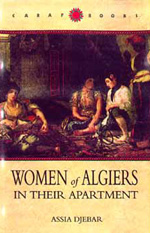 Women of Algiers in Their Apartment
Women of Algiers in Their Apartment
(Femmes d'Alger dans leur appartement)
Translated from the French by Marjolijn de Jager
This book, published in 1980, is a set of short stories and an essay about the women of Algeria and
their existence in a society that wants to keep them apart from the world and subservient to the male.
It isn't the romantic formula of Western literature about the harem; these are stories of oppression,
both at the hands of individual men and from two paternalistic societies: French colonial and fundamentalist
Islam. More precisely, they are stories about the loss of voice and public identity, about disappearing
into a private enclave whose keys are held by men.
I found the chronology of the stories interesting; they move backward. They start with the 1970s in the days of post-colonial Algeria as the country moves toward an Islamic society. They pass through the arc at whose zenith women stood relatively equal with men as guerilla fighters, able to pass the French soldiers with a flirt while carrying their bombs and guns. They end with stories of the colonial days. In comparing the last story, with its seraglios, to the first, where female freedom fighters are deliberately forgotten, and dumped into insane asylums under the care of male doctors, you get a real sense that nothing really changed—only the outward form is different.
Perhaps the most surprising aspect of this book for me, given the feminist core, is the situation of men. Of course, many are simply the oppressors in these stories; Djebar makes clear her position that the world would be a better place without them. Yet the few men who are not the victimizers come across, themselves, as victims...and victims that are, in some ways, even more desperate: lost, alone and isolated. For, despite the subjugation of the women, both past and present, Djebar shows them bound together in a society of their own. When one woman is hurt or in need, it is always another woman who reaches out to ease her pain or help her understand. Shared suffering, forced seclusion and exclusion have created a hidden society, the world of the "apartment," which has bonds that aren't seen in the outside world.
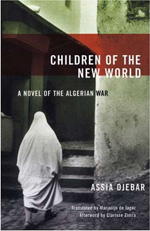 Children of the New World
Children of the New World
(Les Enfants du Nouveau Monde)
Translated from the French by Marjolijn de Jager
Children of the New World was written at the early end of the timeline defined by
Women of Algiers in Their Apartment and anchors it not only chronologically, but
emotionally as well. It was Djebar's third book and has, by comparison, almost a hopeful
tone, written as it was on the eve of independence and before the calamities of the oncoming
decades. This story is told in novel form, tracing a web of encounters and interactions between
a double-handful of people on a single day during the final stages of the war.
This is a story whose borders are defined by the myriad of viewpoints presented to the reader. What seem to be diverse story lines gradually tie together into a unified whole encompassing the motivations, the dilemmas, and the costs of insurrection upon the country and its people.
At first glance, the book seems balanced between male and female perspectives: the first chapters are centered on women, the last on men, and those in the middle alternate. However, as the story progresses, it's clear that this book is actually centered on the impact the struggle has upon the women and their responses to it. The life decisions they make in response to the demands upon them form the story's structure, and make the women inhabiting it the actors and the men the reactors. Cherifa's decision to step out of her seclusion, Hassiba's to join the guerillas, Touma's to collaborate with the French, even Salima's to say nothing with a strength that came "from all the silenced women she used to know"-- these are the defining curves of the story that simply draw the men along in their wake.
One of the most intriguing aspects of this story is how Djebar makes it a challenge to build a simple equation between traditional vs. Westernized and oppressed vs. free roles for women. She will seem to reinforce that dichotomy with one set of characters. Then she will turn and show us Lila, largely unconstrained by culture, yet paralyzed by what is occurring around her and sure to be destroyed by the coming events, and Cherifa, nominally sequestered as a proper Muslim wife, yet in a marriage of mutual respect with a man who thinks her truly freed. In the scene that had, for me, the most impact in the entire book, Cherifa leaves her house for a solo, public journey across town to warn her husband, Youssef, of danger. It is an act of courage for her, yet also of necessity—one in which, as a person, she must step beyond traditional female passivity and take action. As she puts it, "For a happy wife, living inside a house she never leaves, as tradition has prescribed, how for the first time to act? [She] must also create a new step, a new approach—a different way of seeing, being seen; of existing."
As the story draws to an appropriately symbolic close, the reader is left with a hope for the country and its people—most particularly, its women.
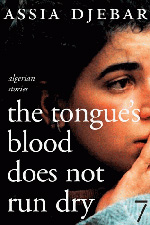 The Tongue's Blood Does Not Run Dry
The Tongue's Blood Does Not Run Dry
(Oran, Langue Morte)
Translated from the French by Tegan Raleigh
If Children of the New World represents the optimism of the mid 1950s in Djebar's
work, The Tongue's Blood Does Not Run Dry represents the sorrow and anger of forty
years later. This book comprises seven stories, each inspired by an actual story told to
Djebar, and focused on the toll exacted by Algeria's turmoil on its women.
In the first part of the book the reader is faced with the terror of Algeria's Civil War. In a time when 160,000 to 200,000 assassinations took place, to take any side at all was to risk being executed. Women are left coping with murdered parents in "Oran, Dead Language" or a slain spouse in "The Attack" because speaking out against government corruption or oppression earned a death sentence from the OAS death squads.
Yet the alternative was no better. In the most haunting and fairy tale-like story of the collection, "The Woman in Pieces", Islamic fundamentalists callously kill an exceptional teacher in front of her students simply for teaching them fables. Or, in "Non-return Returns", we see even the bond between mother and daughter broken apart simply for sitting with a boy, in an oppressive regard for "the honor of the venerable, betrayed father."
These horrific stories, all the more so for being based in actual experience, serve to memorialize the forgotten voices in the struggle between one oppressor and another.
The second portion of the book looks at those caught between the two worlds of France and Algeria, and the seeming inability for them to coexist peacefully. In "Annie and Fatima" a French mother, seeing her daughter who was kidnapped by the Algerian father, must face a young girl in a chador who "could get used to the idea of having a French mother" but could not get used to a mother who did not observe Islamic law.
In "Félicie's Body", the children of a French mother and Algerian father reflect on the polarity of their lives, each with an Arabic and a French name, two religions, two sets of expectations. As Ourdia/Louise muses, "[It's] as if they had placed their sons and their daughters on a frontier, a crest, a no-man's land...it's as if when we were born you told us, there, you've got two sides, two faces." In the end, they grapple with the fact that modern Algeria would simply not let this duality exist. To bury their mother, they must give her an Arabic name and pay to have her declared Muslim so that she can be interred with her husband in Algeria, as Armand/Karim says, "...two countries (which to disown, which to adopt?)"
In looking at the distance between the optimism of Children of the New World and the despair of The Tongue's Blood Does Not Run Dry, we can see that the plight of women expressed so clearly in Women of Algiers can be read both literally and as a metaphor for Algeria herself. The loss of voice and public identity at the individual level was echoed at the national level. Djebar shows us that to speak up was to be silenced permanently by either OAS fanatics or Islamic extremists; to have an identity other than "French" on one hand or "Arab" on the other might keep you alive, but it left no room to be a bit of both or even Berber. The 1950s changed everything but, in the end, had changed nothing. When all is done, there is almost a tone of "why did we bother?" Assia Djebar's metaphor becomes explicit at the end of the book:
Download as pdf
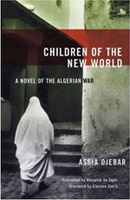
The Feminist Press, paperback, 9781558615106
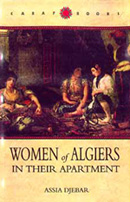
Univ. of Virginia Press, paperback, 9780813918808
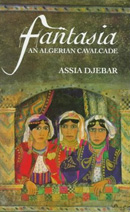
Heinemann, paperback, 9780435086213
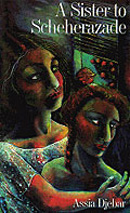
Heinemann, paperback, 9780435086220
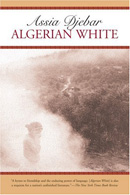
Seven Stories Press, paperback, 9781583220672
Seven Stories Press, paperback, 9781583225165
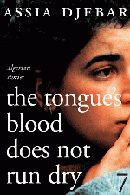
Seven Stories Press, paperback, 9781583227879